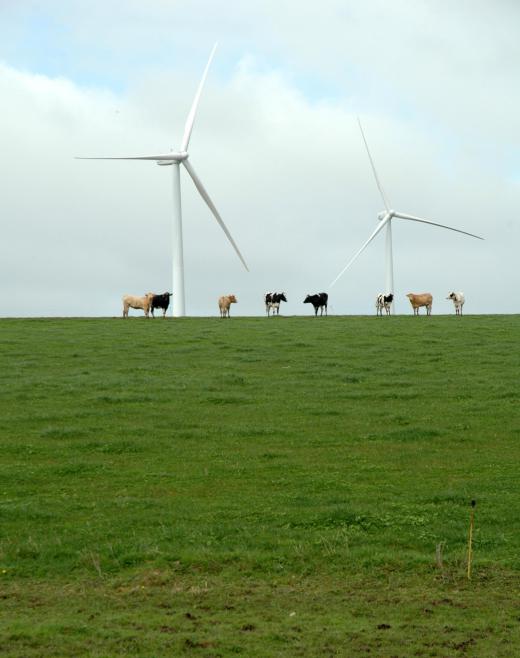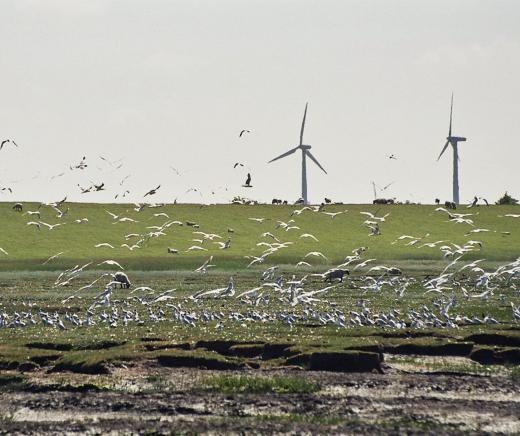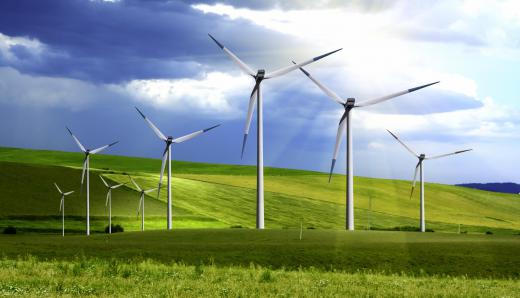Wind farms can provide clean, renewable energy to homes and businesses. They are only effective, however, if placed in proper locations. Whereas a single wind turbine, also called a windmill or wind generator, may be effective for personal electricity usage, constructing a farm of several large turbines for regional power requires specific geographic and atmospheric conditions.
The topography of a wind farm should be flat, yet elevated. Bumpy, uneven terrain creates potential wind-blockage, slowing airspeed through the farm. Wind-speed increases at higher altitudes, however so it is important that the entire flat area is also elevated. For this reason, many wind farms are located on hilltops, but the hilltops themselves may be flattened if they are not naturally leveled.

Wind farm locations should also be large enough to accommodate the wind turbines with the greatest possible distance between the generators. The exact necessary distance necessary varies based on the size of the windmills. If wind generators are too close together, the windmills may interfere with each other, slowing down wind-speeds as the air passes through the farm. This interference, often called the "wind park effect," is usually avoidable if large locations are plotted for the wind farm.

In addition to topographical concerns, the atmospheric conditions of potential wind farm locations must also be taken into consideration. Even though a hilly location produces faster wind, regular weather patterns may still show that the area is not windy enough. It is important to accurately measure the area’s wind, making sure that the location has a consistent speed of at least 10 miles per hour (16.1 km per hour). Additionally, the wind speed should be fairly stable. Stormy weather can create bursts of intense wind leading to turbine damage or substation power surges.

Environmentally, wind farms must also consider area wildlife. Bird and bat deaths have been attributed to wind farms when turbines are placed near large animal populations. Some experts also argue that ground-dwelling animals, while not killed by the turbines, may face migratory or mating disruptions from the presence and noise of windmills. Domesticated animals, like cows, do not seem to be disrupted by wind turbines, so, many wind farms are deliberately placed near land that has already been converted into grazing area for cattle.

Unconventional wind farm locations are becoming increasingly popular in the face of growing concern for bird and bat habitats. Furthermore, some cities and towns with adjacent wind farms have complained about the negative aesthetic appearance of the turbines. Newer, unconventional wind farms are placed out at sea. While hilltop elevation is impossible for oceanic wind farms, engineers can build the farms along areas of steady seaborne winds for impressive wind speeds. While effective, offshore wind farm locations are considerably more expensive because of difficult installation logistics.
